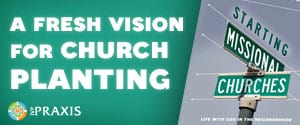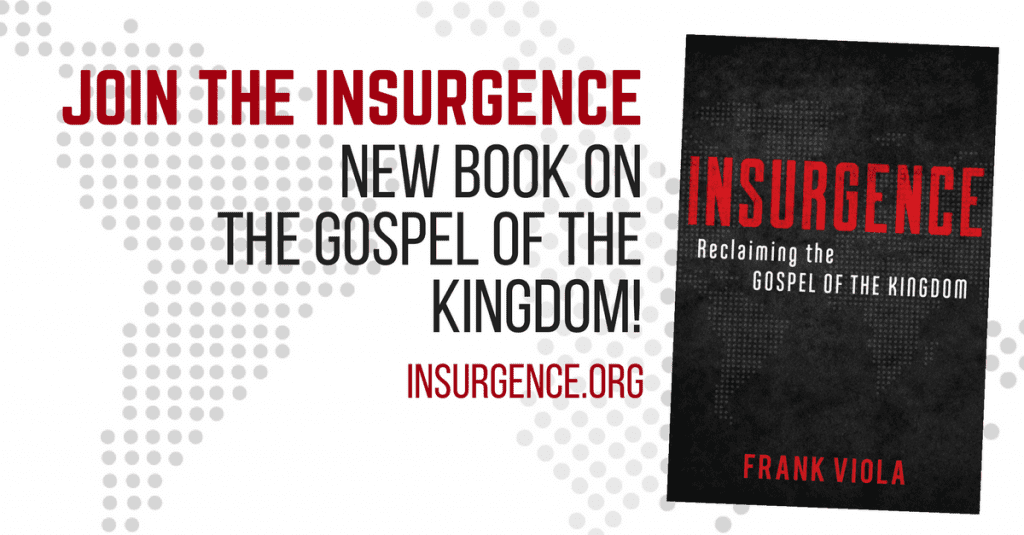InterVarsity Press has just released a new book called Starting Missional Churches: Life with God in the Neighborhood written by Mark Lau Branson and Nicholas Warnes.
I caught up with the authors to interview them on their new book.
Enjoy!

Instead of asking, “what is your book about,” I’m going to ask the question that’s behind that question. And that unspoken question is, “how are readers going to benefit from reading your book?”
Nick Warnes: Good question. The benefit of readers is two-fold. First, readers will encounter a fresh theological framework for how new churches are started. We contrast the pre-conceived notions of how new churches begin with four new priorities.
We want to encourage everyday people in everyday churches to become engaged in the local neighborhoods and to develop contextual imaginations. Link these new priorities with seven practical, on the ground narratives of people doing this work across America, and readers will experience the four new priorities in action.
To add to this, we are finding that many existing churches, along with new churches, are finding encouragement and very practical stories in our book. This came as a bit of a surprise to us, but we are enjoying the activity! The book is meant to be accessible and we hope that it will inspire planters and churches to become aware of how God is already ahead of them in their own contexts so they can be witnesses of Emmanuel in their communities.
Just like “organic church,” the term “missional church” has become a clay word in our time. It’s been defined so many different ways by so many different people that the word itself is practically meaningless. Unless one specifically defines it. So how do you define a “missional church” in your book?
Mark Lau Branson: I agree with your premise – the word “missional” has come to mean everything from satellite campuses to better outreach programs to restocked food pantries. We emphasize two elements, and they have theological roots.
First, God is the initiator, so the Holy Spirit is already at work in and around our neighbors. That means that we, as leadership teams and as churches, need to begin by becoming aware so we might discern and participate in God’s activities.
Second, our neighbors are subjects (not objects) so we don’t just deliver goods and services and truth to them. Rather we listen and participate and become neighbors – which opens relational spaces for collaborative activities and conversations in regard to all aspects of life, including the welfare of the neighborhood and our own lives as physical, relational, spiritual, thinking, acting people. God is an engaged, missional God, so we join in.
Please give a few examples of a “missional churches” that you feel are impressive. And tell us why they are impressive.
Nick: Well, we don’t want to give too much away! At the center of our book are seven examples of “missional churches” that are indeed impressive. As we began we invited dozens of churches to share their stories. Fifteen agreed to participate.
We slowly worked through these different narratives and chose the seven that fit within the practices of a missional church and offered significant diversity regarding geography, denominations, and ethnicity.
We admired these churches as they were regularly discerning the initiatives of the Spirit of God with one another in their particular cities and neighborhoods. They were making courageous decisions and those decisions were leading communities, both people inside and out side of the church, into mutual transformation. The best part is that all of the churches that we chose are still doing this work today! They continue to not only thrive, but also multiply.
How is your book different from the plethora of other books on “missional church” on the market today?
Mark: Many such books have confidence in the habits of modernity – assured strategies, predictable programs, and specialized experts. They miss the profound theological reminders in Lesslie Newbigin’s work – that God works in specific and concrete ways in each cultural context and in each person.
When we simply import marketing plans and prescribed worship or social plans, we are not attending to God’s initiatives. Instead, if a church learned (through scripture, prayer, and life among neighbors) then each and every church person becomes a key participant in becoming aware, in imagining possible engagements, and in experimenting toward gospel life.
Readers will see that we are very appreciative of many other authors; our book benefits from the thoughtful and engaging work of others. Because of what we have learned in our own networks, we knew that our book needed to engage real on-the-ground stories, and we needed to provide articulate and relevant reflections from the perspectives of theology, leadership theory, and cultural studies.
So by featuring diverse new churches – from various locations, denominations, and ethnicities – and adding relevant frameworks and commentary, we believe we have provided an accessible and insightful book.
Give us two or three insights from the book that would be helpful to all Christians, not just people who are into “missional church.”
Nick: As Mark and I have been sharing this book and its contents with people across the country, we are finding the content of the book fits well into the lives of Christians. For instance, Mark’s work that he did on prioritizing our neighbors not as objects, but as mutual subjects of God’s affection has shifted the way that people view their neighbors. Mark really hit on the church’s common objectification of the people that surround us, and inspired a different way forward that is prophetically connecting with readers.
Another aspect of the book that would be helpful to all Christians is the expansion of the imagination that occurs when we are confronted with practical examples of people that are creating with one another. As we hear more and more stories of new churches, Mark and I continue to fall deep into the wonder and power of a community of people discerning God’s initiatives, innovating with God in those initiatives, and enjoying the fruit of the shared effort with God.
Stories of already existing churches and institutions can be motivating, but there is something distinctive about the faith of people who plant churches that we find exceptionally inspiring. We hope that others experience the same thing as they encounter the seven churches in our book.
Have you gotten any push-back on the book? If so, explain and respond.
Nick: The book has just been released, so there hasn’t yet been push back. We were fortunate to receive many comments from readers who were given the book prior to release. Thus far, all of their reviews, from professors and practitioners, have been positive.
We anticipate reciprocal formation with people who would like to enter into thoughtful dialogue with us. We are still learning about life at the intersection of church planting and missional church and look forward to continuing in the process with others.
When a reader finishes your book, what will they “take away” from it?
Mark: They will have genuine hope – that God is ahead of us in our own neighborhoods and communities and that God wants to shape and empower us to participate. We are continually encouraged by the stories we hear, the collaborative and innovative activities, and the frequent boundary-crossing (generationally, ethnically, economically) all across the country.
We believe readers will gain some insightful frameworks that will allow them to see more clearly and to understand what they are experiencing. And we are convinced that these stories and reflections will provide encouragement for numerous leadership teams who want to plant churches or participate in the missional transformation of an existing church.
—
Mark Lau Branson, Homer Goddard Professor of Ministry at Fuller Theological Seminary, and coauthor of Churches, Cultures and Leadership: A Practical Theology of Congregations and Ethnicities (IVP Academic, 2011).
Nicholas Warnes, organizing pastor of Northland Village Church in Los Angeles, coach and church planting assessor for the Presbyterian Church (USA), and a teacher and advisor for the Fuller Theological Seminary Church Planting Certificate.
Order Starting Missional Churches: Life with God in the Neighborhood on discount.













